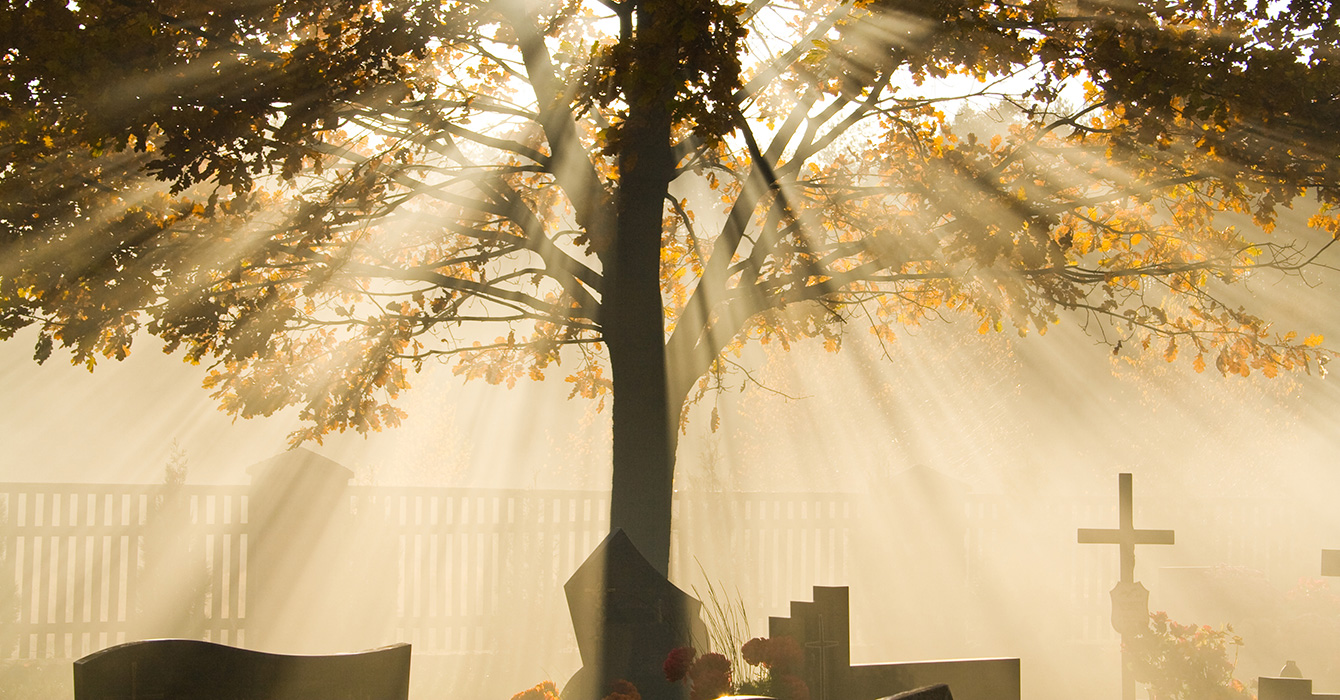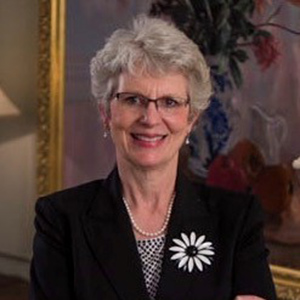One wintery day at a family cemetery in Southside Virginia, a Belgian-born widow stood at attention, weeping and trembling as taps was sounded and an American flag folded and presented to her. A lifetime earlier, during World War II, a U.S. Army private stationed near the front lines of Belgium during Germany’s occupation had discovered her near death. He began smuggling food to keep her and her sisters alive. Neither spoke the other’s language, but both understood love.
Reunited after Europe’s liberation, they married, and she lived the rest of her life loving the one who’d saved her. Now, as she said goodbye to him, the fanfare was minimal but the moment profound. This man was a saint.
As a minister of the gospel and the wife of a funeral home owner and director, I’ve witnessed the various ways people respond to the death of family, friends, foes, heroes and saints. I’ve had a front-row seat to people’s lives, deaths and remembrances for 40 years — or, paraphrasing Lin-Manuel Miranda, the throughline from life to legacy of who lives, who dies, who tells our stories.
Today’s culture has seen a significant shift away from prioritizing the time around death and memorialization of the deceased. We seem more concerned with protecting the schedules and special interests of survivors and society. Our lives used to be more social-centric, with a willingness to hit pause and reflect on those just lost to death, sitting and sharing in grief with those who mourn. The necessary restrictions of COVID accelerated this trend.
The attempt to eradicate sadness by moving toward celebration, though often well-intentioned, can diminish the reflective and solemn commemoration, such as Jesus and his disciples practiced at the Last Supper. We can lose the importance and impact of remembering.
Each year on Nov. 1, people in Christian communities all over the world recognize All Saints’ Day, commemorating all the saints of the church, those known and unknown, formally recognized as such or informally honored by individuals whose lives they touched. Though the exact origin of this day isn’t easily traced, evidence extends as far back as 609, when Pope Boniface IV dedicated the Pantheon in Rome as a Christian church in honor of the Virgin Mary and all martyrs.
If we don’t take time to honor and commemorate those in heaven “who lived heroically virtuous lives, … worthy of imitation” (as described by the United States Conference of Catholic Bishops), we miss the blessings their memories create.
While the Catholic Church has an official process by which the deceased are admitted into sainthood, there is no formal process for identifying or admitting those worthy of being named saints in the free-church Baptist tradition I belong to. This means we can be open to a broader array of saints than some realize, but I recognize the universal significance of the USCCB’s key criteria.
Among international saints, those canonized by the Catholic Church include St. Mother Teresa, recipient of the Nobel Peace Prize. In the Missionaries of Charity, the Roman Catholic order she founded, she sought to serve “the poorest of the poor.” She lived heroically, virtuously, for 87 years, a life most worthy of imitation.
The Rev. Dr. Martin Luther King Jr. can be regarded as a national saint with international impact. The American Baptist minister and eminent leader in the civil rights movement from 1955 until his untimely death practiced, preached and modeled how to fulfill the two greatest commandments — to love God and love neighbor — despite and because of the harsh cruelty toward Black Americans in the South.
There are also saints who are personal. For me, that includes my mother, Cordelia Hayes Tucker. From her childhood to the day of her death, she led an intentionally kind and honorable life — divinely wise, measured in speech and limitless in life-giving love. She was eternally calm in the midst of life’s fiercest storms. Her wise words and unwavering support propelled me to be my best, to leave every person and place I encountered better than the one I found. She is a saint worth honoring and never forgetting.
William Walsham How, Anglican Bishop of Wakefield, writing 150 years before Lin-Manuel Miranda, pointed to the blessing and benefits of remembering the departed saints triumphant with his 1864 hymn “For All the Saints.” Among his emphases:
- The critical connection and communion of saints, living and dead — “Oh blest communion, fellowship divine! We feebly struggle, they in glory shine; Yet all are one in Thee, for all are Thine.”
- The significant example of those who lived, persevered and died well, and pivotal encouragement to keep going in the face of long and seemingly insurmountable odds — “Thy soldiers, faithful, true and bold” inspired by “the saints who nobly fought of old.”
- The crucial reminder that resurrection is real and certain, a promise affirmed by the bodily resurrection of Christ — “But lo! there breaks a yet more glorious day; The saints triumphant rise in bright array; The King of glory passes on His way.”
We cannot replace the saints who’ve gone before us. But we can remember those lives, imitate their most virtuous and heroic qualities, and fan into flame the small spark in the saints-in-the-making who come after us.














